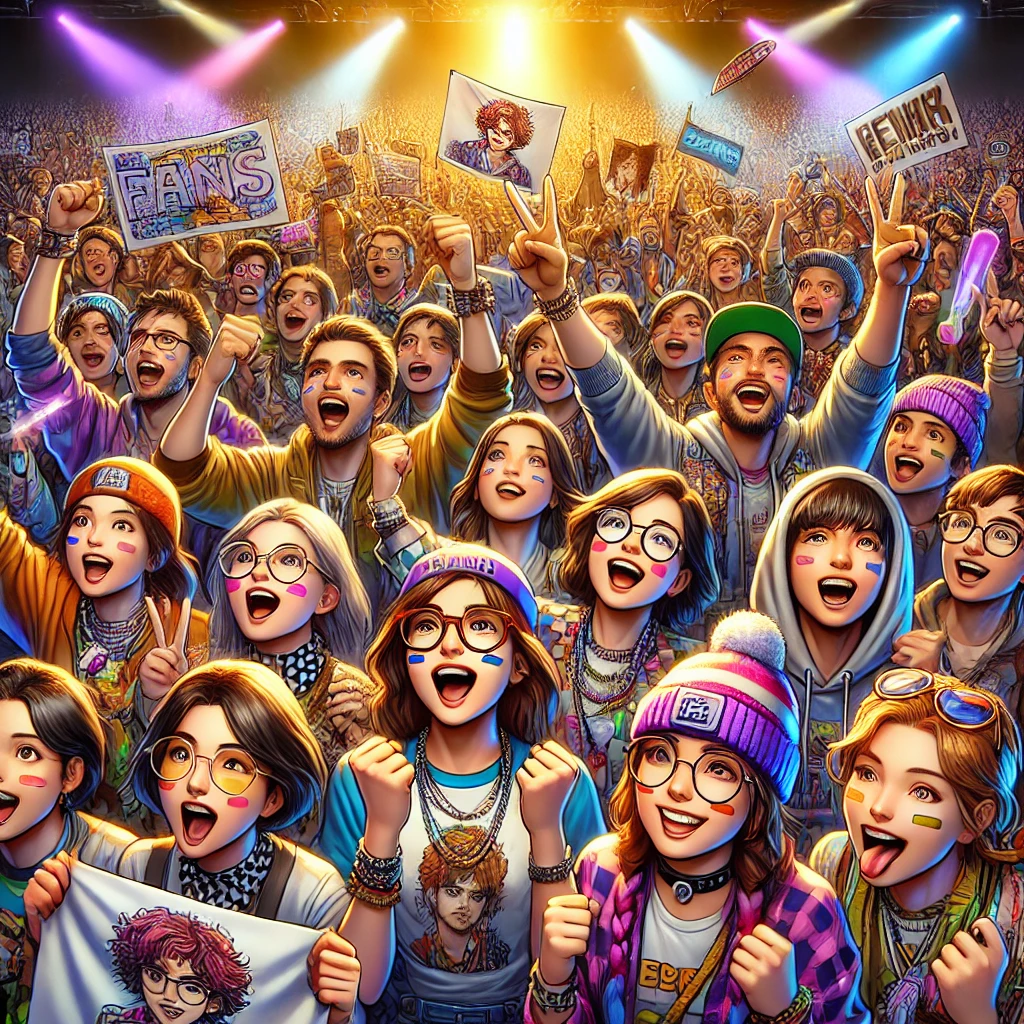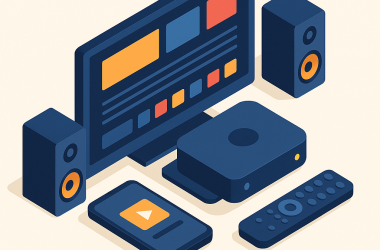Table of Contents Show
Introduction
In the ever-evolving landscape of media and entertainment, the relationship between fans and creators has become a central, dynamic force. This relationship, often described as a “psychological contract,” is not formalized by legal documents or explicit agreements, but rather by a complex web of expectations, trust, and mutual influence. The psychological contract between fans and creators shapes the way content is produced, consumed, and perceived, influencing everything from the success of media franchises to the longevity of a creator’s career.
At its core, the psychological contract refers to the unspoken, implicit agreements that fans and creators form with one another. These agreements are built on expectations – fans expect certain types of content, engagement, and recognition from creators, while creators expect loyalty, support, and constructive feedback from fans. When these expectations are met, the relationship thrives; when they are violated, it can lead to disappointment, backlash, and even the unraveling of once-strong communities.
This article explores the intricacies of the psychological contract between fans and creators, examining its origins, how it manifests in different media forms, the potential for conflict, and the evolving nature of this relationship in the digital age.
Origins of the Psychological Contract
The concept of a psychological contract has its roots in organizational behavior and labor relations, where it describes the unwritten set of expectations between employers and employees. However, the idea has been increasingly applied to the relationship between fans and creators, as both parties engage in a reciprocal exchange of value. Unlike the transactional nature of employment contracts, the psychological contract between fans and creators is driven by emotional and social factors.
Historically, the relationship between fans and creators was relatively one-sided. Creators – whether they were authors, musicians, filmmakers, or artists – produced content, and fans consumed it with little direct interaction. The advent of mass media in the 20th century, from radio and television to film and music, began to blur these boundaries, allowing for fan clubs, fan mail, and eventually conventions where fans could interact with their favorite creators. However, these interactions were still largely mediated by intermediaries such as publishers, record labels, and studios.
The rise of the internet and social media in the 21st century has fundamentally transformed this relationship, democratizing content creation and distribution. Platforms like YouTube, Twitter, and Patreon have allowed creators to connect directly with their audiences, fostering a sense of community and intimacy. Fans now have unprecedented access to their favorite creators, while creators can receive immediate feedback and support from their fan base.
This increased accessibility has led to the development of a more nuanced and complex psychological contract, where the boundaries between creator and consumer are often blurred. Fans no longer see themselves as passive recipients of content, but as active participants in the creative process, with a vested interest in the success and direction of the creator’s work.
Manifestations of the Psychological Contract
The psychological contract between fans and creators manifests in various ways, depending on the medium, the nature of the content, and the dynamics of the fan community. While each relationship is unique, several common themes can be identified:
- Expectation of Authenticity: Fans often expect creators to be authentic and genuine, both in their work and in their interactions. This expectation is particularly strong in the age of social media, where creators share personal aspects of their lives and opinions with their audience. Authenticity helps to build trust, as fans feel they are connecting with the “real” person behind the content. When creators are perceived as insincere or overly commercial, it can lead to a breach of the psychological contract.
- Demand for Engagement: Fans today expect a certain level of engagement from creators. This can include responding to comments, participating in fan communities, or acknowledging fan contributions such as fan art, fan fiction, or social media posts. Engagement helps to reinforce the sense of community and mutual respect, making fans feel valued and heard.
- Creative Influence: As active participants, fans often expect to have some influence over the content they support. This might involve creators taking fan feedback into account when developing new projects, incorporating fan ideas, or even allowing fans to vote on certain decisions. While creators are not obligated to cater to every fan demand, acknowledging and considering fan input can strengthen the psychological contract.
- Expectation of Consistency: Fans expect creators to deliver content that aligns with their established brand, style, or narrative. This consistency helps to build a loyal fan base, as fans know what to expect and can rely on the creator to meet their expectations. When creators deviate too far from what fans expect, it can lead to confusion, disappointment, or a sense of betrayal.
- Emotional Investment: The psychological contract is often fueled by the emotional investment fans have in the creator and their work. Fans may develop a deep connection to the characters, stories, or themes in a creator’s work, leading them to feel a personal stake in its success or failure. This emotional investment can intensify both positive and negative reactions, depending on how well the creator meets fan expectations.
Potential for Conflict
While the psychological contract can create a strong bond between fans and creators, it also has the potential to lead to conflict. This is particularly true when there is a mismatch between fan expectations and the creator’s vision or actions. Several common sources of conflict include:
- Creative Differences: One of the most common sources of conflict is when fans and creators have different ideas about the direction a project should take. This can occur when a creator makes a controversial decision, such as killing off a beloved character, changing the tone of a series, or introducing new elements that fans find jarring. When fans feel their expectations have been violated, they may respond with anger, criticism, or even organized campaigns to pressure the creator to change course.
- Perceived Neglect or Abandonment: Fans may feel betrayed if they perceive that a creator has abandoned them or neglected their community. This can happen if a creator stops engaging with their audience, takes on new projects that seem to disregard their existing fan base, or moves away from the type of content that initially attracted their fans. When fans feel neglected, they may withdraw their support or express their dissatisfaction publicly.
- Commercialization and Sellout Accusations: Fans often expect creators to prioritize their artistic vision over commercial interests. When a creator is perceived as selling out – whether by endorsing products, pursuing overly commercial projects, or making decisions that appear motivated by profit rather than passion – it can lead to accusations of inauthenticity and a breach of the psychological contract.
- Moral or Ethical Disagreements: In today’s politically charged environment, creators’ personal beliefs and actions are often scrutinized by their fans. If a creator takes a stance on a controversial issue, behaves in a way that contradicts fans’ values, or is involved in a scandal, it can lead to a rift in the fan community. Fans may feel conflicted about supporting a creator whose actions they disagree with, leading to debates, divisions, and in some cases, boycotts.
- Fan Entitlement and Toxicity: On the other side of the equation, creators may struggle with fans who feel overly entitled to dictate the direction of their work. This entitlement can manifest as toxic behavior, including harassment, demands for specific content, or attempts to control the creator’s personal life. When fans cross these boundaries, it can lead to burnout, frustration, and a breakdown of the psychological contract from the creator’s perspective.
The Evolving Nature of the Psychological Contract in the Digital Age
The psychological contract between fans and creators is not static; it evolves over time, influenced by changes in technology, culture, and the media landscape. In the digital age, several trends are shaping the future of this relationship:
- Increased Transparency and Accessibility: Social media and digital platforms have made creators more accessible than ever before. Fans can follow their favorite creators on multiple platforms, receive real-time updates, and interact directly with them. This increased accessibility has led to greater transparency, as creators share more of their creative process, personal lives, and challenges. However, it has also heightened expectations, as fans often demand more content, engagement, and insight than ever before.
- Crowdfunding and Patronage Models: Platforms like Patreon, Kickstarter, and GoFundMe have introduced new dynamics into the fan-creator relationship. Fans can now directly support creators through financial contributions, often in exchange for exclusive content, early access, or personalized rewards. This patronage model creates a more direct, transactional relationship, where fans may feel a stronger sense of ownership and entitlement over the creator’s work. Creators, in turn, may feel increased pressure to deliver on their promises and meet the expectations of their patrons.
- The Rise of Fan-Centric Platforms: New digital platforms are emerging that cater specifically to fan-creator interactions. These platforms often prioritize fan engagement, allowing for more direct communication, collaborative projects, and community-building activities. As these platforms grow, they may further blur the lines between fans and creators, making the psychological contract even more complex and multifaceted.
- Global Fan Communities: The internet has enabled fans to connect with creators and each other across the globe, forming diverse, international fan communities. This global reach has expanded the potential audience for creators, but it also introduces new challenges. Creators must navigate cultural differences, language barriers, and varying expectations from fans in different regions. The psychological contract becomes more intricate as creators balance the needs and desires of a diverse, global fan base.
- The Impact of AI and Automation: As artificial intelligence and automation become more integrated into content creation and distribution, the psychological contract may face new challenges. For example, AI-generated content could raise questions about authenticity, creativity, and the role of the human creator. Fans may need to adjust their expectations as technology changes the way content is produced and consumed. Similarly, creators may need to find new ways to maintain a personal connection with their audience in an increasingly automated world.
Navigating the Psychological Contract: Strategies for Creators
Given the complexities of the psychological contract, creators must be strategic in how they manage their relationship with fans. Several strategies can help creators navigate this delicate balance:
- Communication and Transparency: Open and honest communication is key to maintaining a healthy psychological contract. Creators should be transparent about their intentions, creative process, and any challenges they face. This transparency helps to build trust and manage fan expectations. When creators communicate clearly, they can prevent misunderstandings and reduce the risk of conflict.
- Setting Boundaries: While engagement is important, creators must also set clear boundaries with their fans. This includes defining the limits of fan influence, establishing guidelines for respectful behavior, and protecting their personal life. By setting boundaries, creators can maintain their autonomy and prevent the psychological contract from becoming overly demanding or toxic.
- Consistency and Reliability: Consistency is crucial in maintaining fan trust. Creators should strive to deliver content that aligns with their brand and meets the expectations they have set. This consistency helps to reinforce the psychological contract and build a loyal fan base. When changes are necessary, creators should communicate them clearly and manage fan expectations accordingly.
- Listening and Adaptation: While creators should maintain their creative vision, they should also be open to fan feedback and willing to adapt when appropriate. Listening to fans and considering their input can strengthen the psychological contract and foster a sense of collaboration. However, creators should also know when to stand firm in their decisions to avoid compromising their artistic integrity.
- Cultivating a Positive Community: A positive fan community is essential for a healthy psychological contract. Creators should actively foster a supportive, inclusive environment where fans feel valued and respected. This can involve moderating discussions, promoting positive interactions, and recognizing fan contributions. A positive community not only enhances the fan experience but also reduces the likelihood of conflict and toxicity.
Conclusion
The psychological contract between fans and creators is a powerful, complex, and evolving relationship that plays a central role in the modern media landscape. As fans become more active participants in the creative process, and as creators engage more directly with their audience, this contract will continue to shape the way content is produced, consumed, and perceived.
Understanding and managing the psychological contract is essential for creators who wish to build and maintain a loyal, engaged fan base. By balancing authenticity with consistency, engagement with boundaries, and listening with autonomy, creators can navigate this intricate relationship and foster a mutually beneficial connection with their fans.
In the digital age, where the lines between creator and consumer are increasingly blurred, the psychological contract will remain a defining feature of the fan-creator relationship. As both fans and creators continue to adapt to new technologies, platforms, and cultural shifts, this contract will evolve, presenting new challenges and opportunities for those who seek to understand and nurture it.








